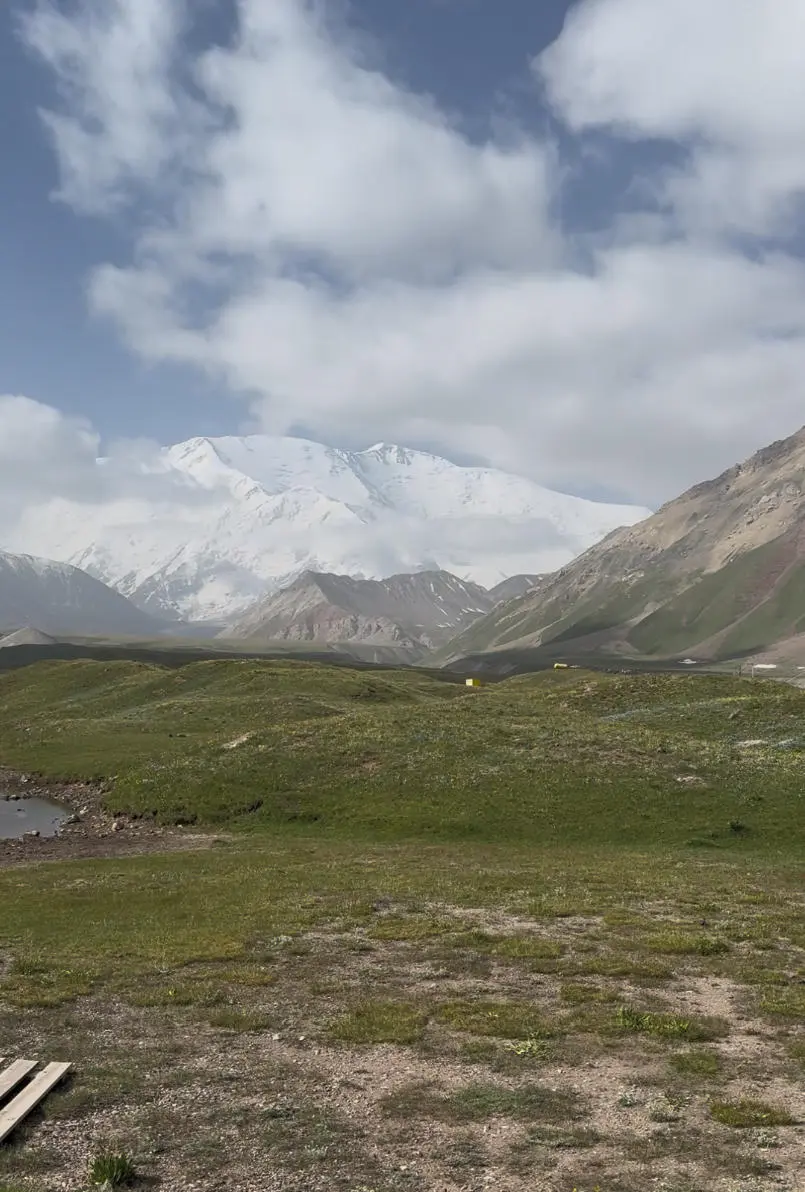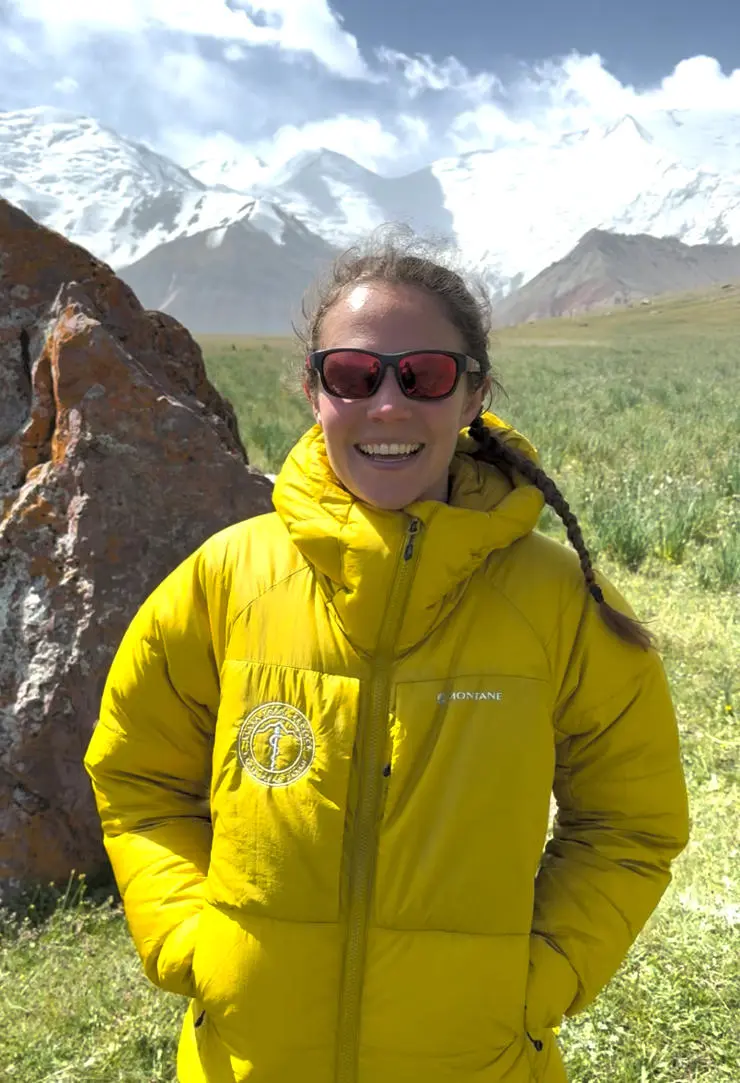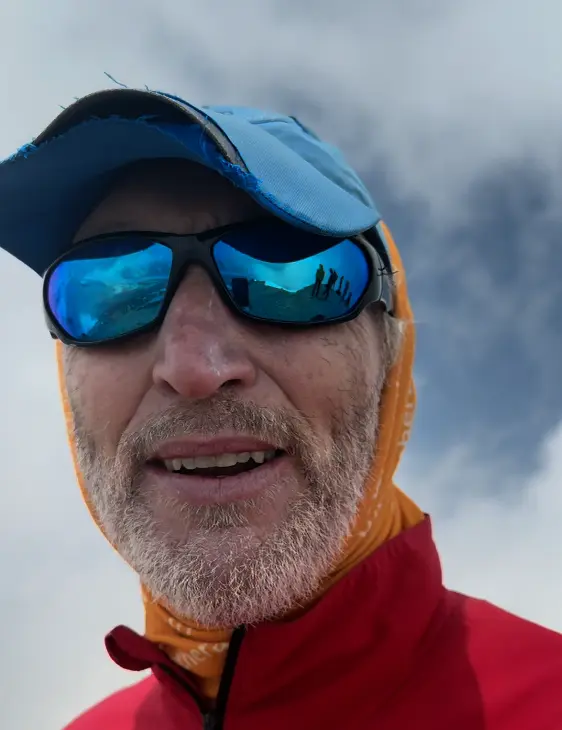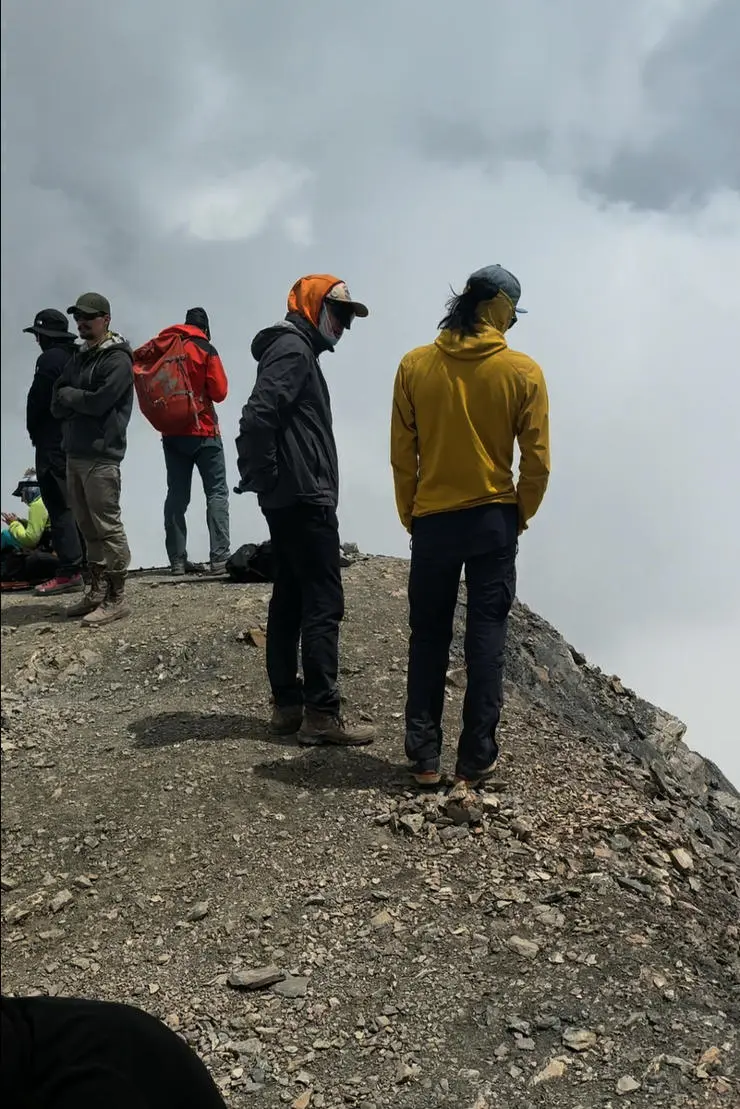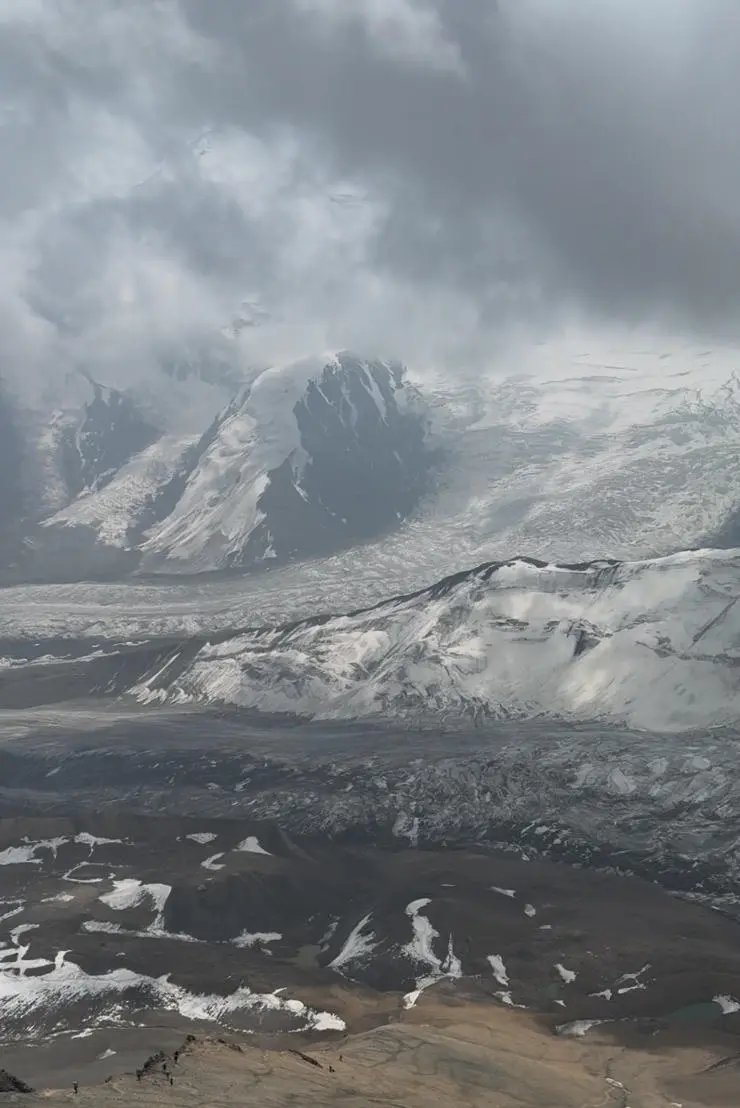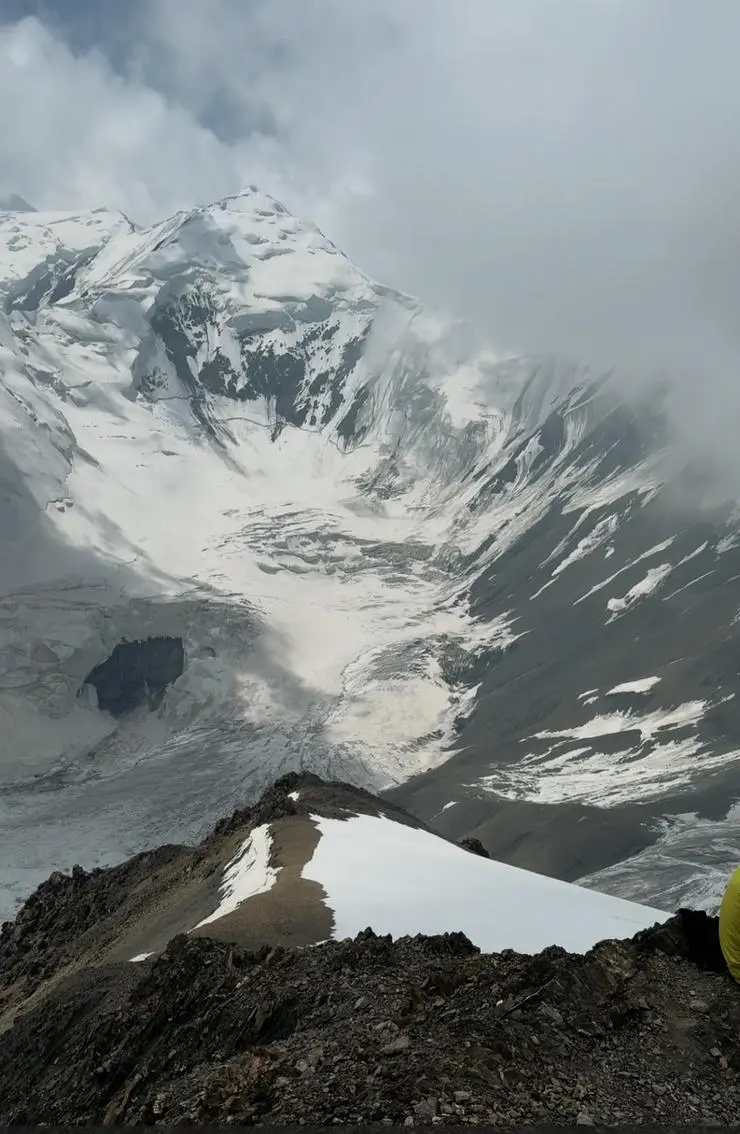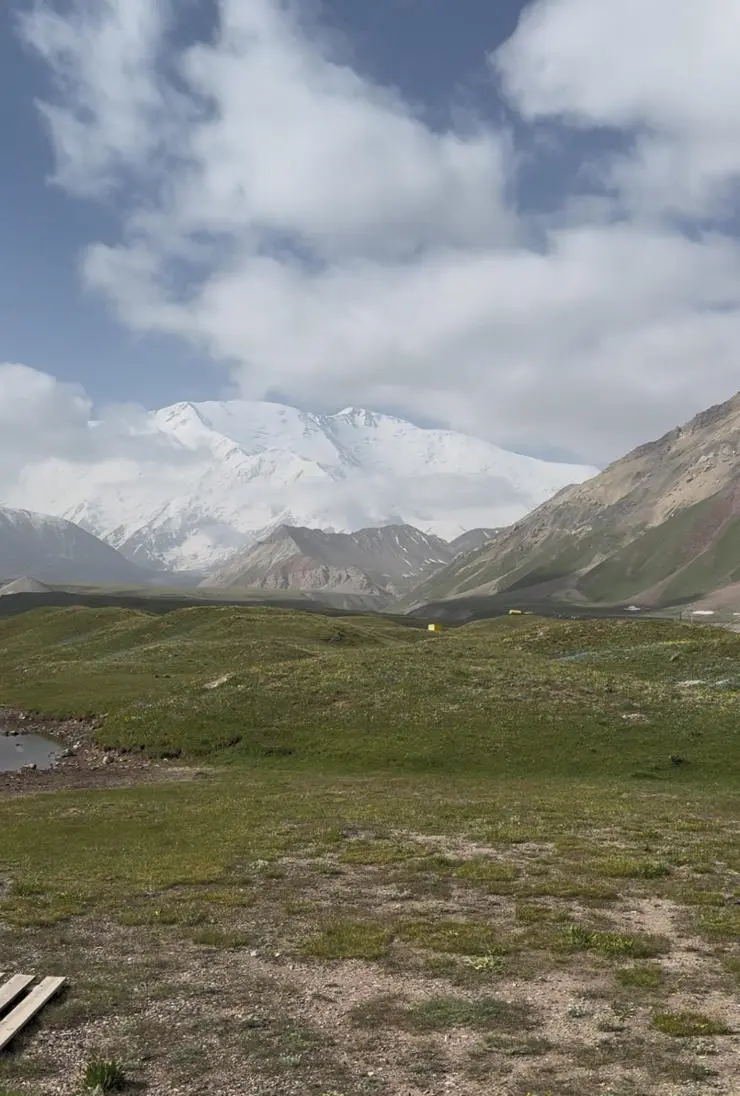Graduates of a specialised mountain medicine programme are helping to keep climbers safe on a Kyrgyzstan mountain often used as a stepping stone to Everest.
The five graduates from the University of Central Lancashire’s Postgraduate Diploma in Mountain Medicine are taking part in the Slava Topol Project on Lenin Peak, the highest peak of the Trans-Alai Range of the Pamir Mountains on the border between Kyrgyzstan and Tajikistan.
The experienced medical professionals will help to run an emergency rescue service, establish a series of medical centres and run safety workshops for climbers.
The temperature on the mountain can drop to minus 30 degrees Celsius and with a wind speed of up to 60mph at the summit, we can expect some dangerous conditions.– Dr Jeremy Windsor, Director of the Centre for Mountain Medicine
Dr Jeremy Windsor, Director of the Centre for Mountain Medicine at the University of Central Lancashire, is helping to run the operation during Lenin Peak’s eight week climbing season and asked the graduates to join him.
He said: “At peak times in the summer there can be around 50 people a day trying to reach the summit of Lenin Peak. The temperature on the mountain can drop to minus 30 degrees Celsius and with a wind speed of up to 60mph at the summit, we can expect some dangerous conditions.
“Currently, Lenin Peak just doesn’t have the rescue capabilities that are needed for the number of people climbing in this environment and that’s why, through the Slava Topol Project, we’re aiming to establish a Preventive Search and Rescue (PSAR) system to improve safety on this popular Central Asian mountain.
"The University of Central Lancashire’s mountain medicine graduates are equipped with the specialist skills to make a significant contribution to the project so I am delighted to bring them on board.”
The University of Central Lancashire’s mountain medicine graduates are equipped with the specialist skills to make a significant contribution to the project so I am delighted to bring them on board.– Dr Jeremy Windsor, Director of the Centre for Mountain Medicine
The Slava Topol Project, named after the late Slava Topol, who was a local legend on Lenin Peak and sadly died during an expedition in 2022, is a non-profit organisation set up in response to inadequate resources and practices when responding to accidents and medical emergencies.
Although considered one of the easier peaks above 7,000 metres (more than 23 000 feet) to ascend, only approximately 25 percent of people who attempt to reach the summit are successful and around five people are killed on the mountain every year.
Tasha Brook, who completed the University’s Postgraduate Diploma in Mountain Medicine in 2023, is one of the volunteers taking part in the Project. As someone was worked as a nurse in the military and spent time volunteering with RAF Mountain Rescue, Tash was keen to build on her existing skills.
The project is a great opportunity to apply what we’ve learned in a real-world context, contribute to the conversation about remote care and help shape what future mountain medical support could look like.– Postgraduate Diploma in Mountain Medicine graduate Tasha Brook
“The Slava Topol Project represents a meaningful evolution in the way we think about providing medical support in remote, high-altitude environments,” she said.
“From a nursing perspective, it also highlights that expedition medicine isn’t just for doctors and nurses can, and should, have a place in these teams. The project is a great opportunity to apply what we’ve learned in a real-world context, contribute to the conversation about remote care and help shape what future mountain medical support could look like.”
Yasmin Down, also a nurse, graduated from the course in 2024. She has worked as a ski instructor in Canada and volunteered with mountain rescue in Munich before visiting Lenin Peak last year to help with the Slava Topol Project as it was being set up.
With it being the first year of the project I am sure there will be some excellent learning opportunities along the way and I cannot wait to see how the initiative develops over the years.– Postgraduate Diploma in Mountain Medicine graduate Yasmin Down
She said: “I am both excited and nervous to return. The mountain sees such a diverse group of climbers and it will be very interesting to see what we will encounter. I hope that everyone feels welcome, even if they just need a chat or want to take a look. With it being the first year of the project I am sure there will be some excellent learning opportunities along the way and I cannot wait to see how the initiative develops over the years.”
The team is also conducting several University supported research projects whilst on Lenin Peak, specifically looking at illness and injury data and identifying risk factors for acute mountain sickness (AMS).
Jeremy added: “This is just the beginning of this exciting venture and something we can build on each year. Our long term goal is to not only improve safety on Lenin Peak, but to lead the way in informing future mountain medicine treatment and injury prevention strategies on a much broader scale.”
